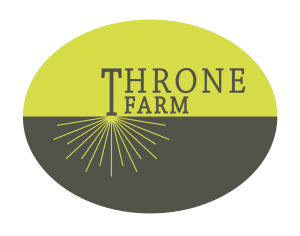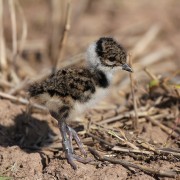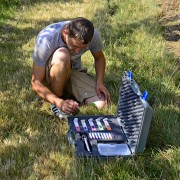What’s happened in Winter 2015 / 2016…
/0 Comments/in Throne Farm/by Stephen WareHere is a quick follow up to the predictions that were posted on the website at the end of Autumn.
With such a late harvest and the extremely mild weather, we couldn’t help feeling that winter will feel very short this Year. This actually proved to be true as it was extremely mild up to Christmas although Spring did take time to finally warm up. This was a mixed blessing as even farmers need time for reflection and planning, the trees need a good cold snap to induce dormancy and they didn’t prune themselves!
At the time I wrote “Against a backdrop of extreme economic uncertainty in agriculture, much of our winter activity will reflected this, with some difficult decisions on the horizon” unfortunately this theme continues in spite of favourable currency changes, the race to the bottom on price continues! Other points I made are listed below in black, with the outcomes listed in red:-
Should we continue to grow cereals when prices have slumped lower than that in the 1980’s? No! We are planting a grass clover mix or maize
Branding Weather Forecasting
/0 Comments/in Uncategorised/by Stephen Ware
Weather forecasts – A farming preoccupation
The BBC announced last Year that it was ceasing the current £32 million a Year contract that it had held with the Met office since 1922.
Weather forecasts strongly influence decisions on the farm such as planting, harvesting, spraying in anticipation of diseases, ventilation, heating, any ground working and many other day to day tasks.
Local folklore indicates that if jackdaws circle the Weobley church spire or the cows are lying down then rain is imminent and large number of holly berries warn of a cold winter.
The Met office has invested in a £97 million super computer for weather forecasting but you can find a much cheaper online option from the Lake District.
In anticipation of the loss of the BBC contract, the Met office PR machine went into overdrive and published “The Latest Public Weather Service Value for Money Review – March 2015”. The results are summarised below.
They clearly do not value the weather effects upon food production. You really don’t know how many times I have screamed at the TV when the weather presenter has sympathised with gardeners about a late frost whilst my 75000 trees are in full blossom and there is a risk we will lose the whole of that Year’s crop or a little rain may curtail somebodies barbeque whilst my crops lie rotting in the fields or orchards.
But there are further indirect effects, with poor weather generally reducing demand for our goods. After all, a pint of cold cider is far more synonymous with a hot summer’s day!
Unfortunately, in my view, interpreting the weather forecast is becoming more difficult with competing suppliers issuing contradictory information. Technology does not always improve things, with fancy graphics dumbing down the main TV forecasts, giving only a general view as opposed to the synoptic charts that allowed us to decipher for ourselves, the effects upon our local area.
Last Autumn however things got a whole lot worse in the commercial world of weather forecasting.
The Met Office and Met Éireann, the Irish Met Service are running a pilot project to name wind storms. Their press release states:-
“The naming of storms using a single authoritative system should aid the communication of approaching severe weather through media partners and other government agencies. In this way the public will be better placed to keep themselves, their property and businesses safe”.
It is already proven in the USA that the general public regarding impending female storms less seriously than male storms!
This is a obvious move to BRAND the weather and blatantly commercialise what should remain as public service information. A distorted perspective on weather forecasting could have a massive negative impact upon the UK economy. Overstating the forecast can drastically impede activity in the general public.
I notice that storm Steve is on the shortlist of upcoming weather events. Isn’t it a bit odd that they have nominated and abbreviated name and a “Stephen”, I assume that my name is to be reserved for a full hurricane.
Whatever next, will they be looking to simulate the DVLA model of personalised number plates and making a quick buck selling the naming rights ? How about “the hunter welly storm Pandora” or “Super Dry storm Edmund / Hillary”?
The Living Wage – Does it affect the whole farm’s work force?
/0 Comments/in Farming Biological/by Stephen WareThe Living Wage – Does it affect the whole farm’s work force?
I could bang on about the effect of the living wage on horticultural businesses but besides having some excellent staff on my payroll, we are in danger of ignoring another essential workforce on the farm.
A hidden work force
All too often, Bacteria and Fungi are misunderstood. The majority are essential to all life and are in desperate need of a “rebrand”. Their main job description is to extract mineral from the soil and make them available to the plant roots.
They are the foundation of the whole soil food web from Protozoa, Nematodes through to earthworms.
Prof William Jackson stated that “microorganism activity in one healthy Hectare uses the same energy in soil preparations as 10,000 people would burn for the same amount of work. We must nourish, protect and stimulate this invisible workforce”. We farm 121 Hectares so that’s a huge number of full time equivalents!
Mobilising the soil army
There are more bacteria in a handful of soil than people who have inhabited the earth.
Plants value their input so greatly that they contribute one Third of the sugar that they produce from photosynthesis.
We have a hidden army which needs to be kept on side.
Soil health & safety
This is where we implement our soil health & safety policy.
For the “health” element we must tend to the physiological needs of Bacteria and Fungi. An army marches on its stomach so it is essential that we nourish them with organic materials but it’s also vital to provide living conditions in the form of soil structure for optimal levels of water & air and continual cover cropping.
‘Safety’ largely relates to protection from toxins, especially not ignoring the damage that can be done by chemical sprays and poor soil management decisions.
A great Deal!
Without “high vis” it’s no surprise that on many farms this workforce is often overlooked
I always thought that the tradition of paying workers with cider was a great deal for Throne farm but where else would you find willing workers 24/7 in return for board & lodging?
Business Hours
LATEST NEWS…
 October 2024 – Flooding causes harvest and planting delays20th October 2024 - 1:30 pm
October 2024 – Flooding causes harvest and planting delays20th October 2024 - 1:30 pm Cider Apple Harvest 2024 – Starting in Fox Field with Browns Bittersharp apples3rd October 2024 - 2:41 pm
Cider Apple Harvest 2024 – Starting in Fox Field with Browns Bittersharp apples3rd October 2024 - 2:41 pm Weobley – Harking back14th August 2024 - 9:22 am
Weobley – Harking back14th August 2024 - 9:22 am







